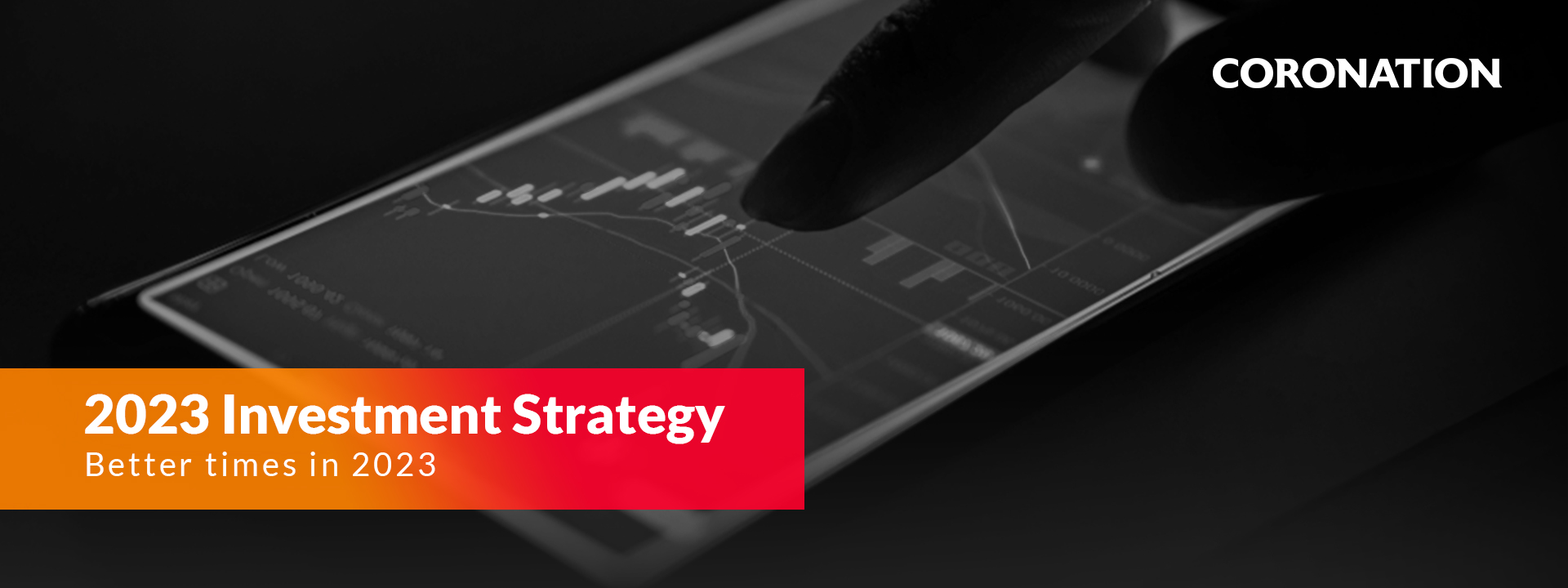Last year, 2022 was a miserable year for global savers. Central banks hurriedly raised policy rates to combat inflation which caused prices to correct across equity and bond markets. Then inflation corroded whatever nominal returns were left. As we enter 2023, equity valuations and bond yields are far more convincing than a year ago. At some point – it is difficult to say exactly when – global markets will anticipate the easing of policy rates and assets will start to perform again. The reset in valuations and yields has created opportunities though not always in the same stocks, or sectors, as were favoured before.
US dollar savers have opportunities they have not enjoyed for years. US Government bond yields are at multi-year highs. Emerging market and developing market US dollar Eurobond yields have risen substantially. In cases where there is no actual risk of distress, African sovereign bond yields are attractive. We favour holding short-dated durations for now and taking medium and long-term durations when global market sentiment improves. This tactic means not getting the full benefit of an upturn in markets, but it reduces risk.
Naira fixed income savers benefit from the best conditions since 2019. The drought appears to be coming to an end, with 1-year T-bill yields edging up towards the level of inflation. Granted, rates are not there yet and may not actually exceed inflation this year, but conditions in the fixed-income markets have improved significantly since the Central Bank of Nigeria adopted an inflation-fighting stance last May. Investors’ money is flowing back into Money Market Mutual Funds.
The current level of liquidity in Naira money markets is high and we expect it to remain so for the first four months of the year, so we expect T-bill rates and FGN bond rates to soften. Then, and assuming that the Federal Government seeks to finance its deficit in the Naira bond and T-bill markets, as detailed in its budget presentation, and as long as the CBN stays the course in fighting inflation with its policy rate, we expect upward pressure on market interest rates in the second half of the year. If this turns out to be the case, the down-and-then-upwards pattern of rates in 2023 might resemble that of 2022.
All these forecasts may be profoundly affected by Nigeria’s general elections, due next month. As our study of 2015 and 2019 shows, general elections are likely to impact on Naira money markets and equities. Look out for changes in interest rate policy and departures from the established course in fiscal policy for potential downside: or for a continuation of interest rate policy and tight fiscal policy for potential upside.
The Nigerian equity market is due a re-think. Surely, after three successive years of positive returns, it should feature as part of a long-term investment portfolio. Our study of earnings per share gains ahead in 2023 suggests that equities are hardly more expensive than they were a year ago. And our study of gross dividends shows that substantial benefits accrue to those who hold stocks for yield.
Many factors make the outlook uncertain – as is the case in any year – but our analysis of what went wrong in 2022 and of the reset in asset values point to real opportunities to make positive investment returns in 2023.









